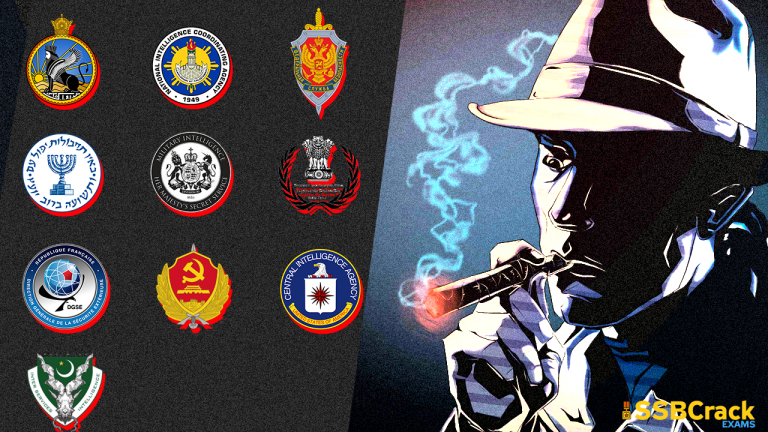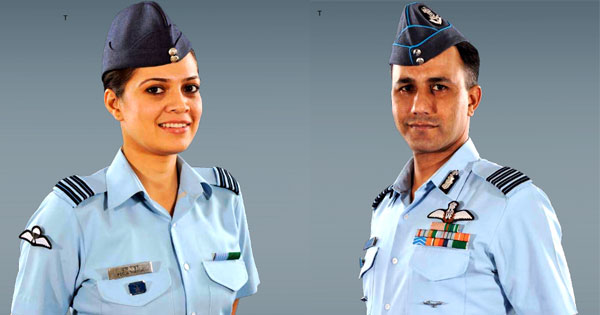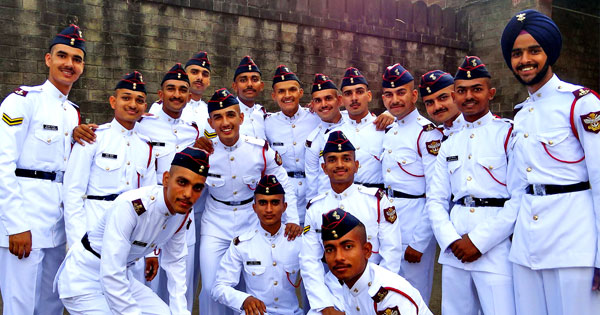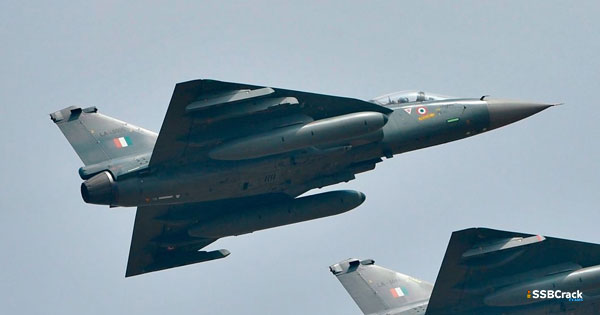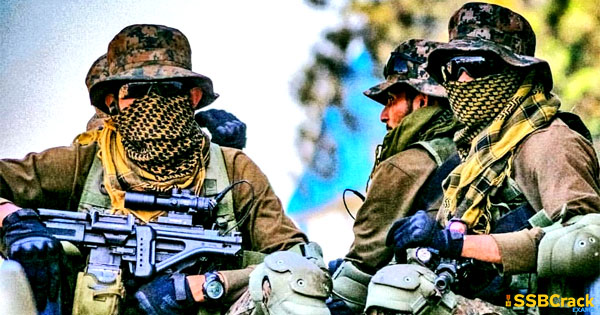The Indian Naval Academy was established in May 1969 and its campus is now in Ezhimala, Kerala. It is the initial training institute of Indian Navy for Officers. Presently the institute also trains Indian coast guard officer cadets. The aim of the Indian Naval Academy is to prepare young men and women to be professional officers in the Indian Navy by providing them a sound education in the academic field, supplemented by the required professional training.
Ezhimala was chosen by Indian Navy to locate the Naval Academy due to its picturesque surroundings, seafaring traditions of the region and rich historical past. The predominant hill feature of Ezhimala is the Mount Dilli and it is 260 m high. Mount Dilli Lighthouse is situated in the southern part of the base and to the north lays the Kavvayi backwaters.
Let’s Put A Focus On The Aim Of Training:
Naval Academy Ezhimala (NAVAC) has been specifically formulated to mould you into a morally upright, physically robust, mentally alert and technologically aware professional, dedicated to excellence. The staffs are committed to impart the highest quality of training and to mould trainees into officers and gentlemen/ladies. The motto of Indian Naval Academy is “Vidhya Na Mrutham Shnuthe”.
Let’s Talk About The Training Of The Naval Cadets:
Deputy Commandant is the chief instructor responsible for the conduct and supervision of training at the INA. The training programme section, the training design and the evaluation Cell function under the training coordinator. This cell is responsible for the planning of the term calendar and training programme, coordination of training activities with external agencies, adventure activities, the conduct of guest lecturer and workshops, the conduct of exams and the evaluation of training on a continuous basis. The Training Coordinator functions under the Training Captain and is responsible for planning, coordination, design and evaluation of training.
ALSO READ: Daily Routine Of IMA Gentleman Cadets
The curriculum has been designed to keep pace with technology and future advancement in various technical areas. In addition, the INA, which is a world-class Academy, will condition the young men and women, who have chosen the Navy as a career to be able to exercise self-discipline, perform efficiently under stress, think and reacts quickly and above all lead men both in war and during peacetime.
Considerable thrust is given to the physical conditioning of each trainee. Outdoor Training (ODT) forms a major part of the training curriculum. Physical Training, swimming, physical conditioning of fresh induction trainees and sports are conducted by the Physical Training Department. The department is headed by a qualified Physical Training Officer Instructor along with 20 other instructors. All these personnel are professionally trained to impart quality instructions to the trainees in all outdoor activities and train them in a scientific manner. The outdoor training pattern is designed in a phased manner. This ensures that the trainees gradually progress through various stages of physical routines and eventually attains proficiency in all disciplines. Swimming is an area where extra attention is paid to individual trainees to ensure that they are proficient in various styles prior to graduation from the Academy.
The seamanship training team imparts trainees their sea legs at the Academy through training in theoretical and practical seamanship subjects. The training team is also responsible for waterman-ship training including boat pulling, whaler sailing, recreational sailing and other water sport activities.
Let’s Talk About The Daily Routine Of The Naval Cadets:
The cadet gets up early in the morning before the sunrays dawn upon the earth. This time doesn’t change be it sunny, windy, rainy, and cold, the time is always the same, it isn’t your regular school to delay your start or totally cancel it off owing to bad weather, it is the navy and one needs to go on. Now he is ready to go for his drill, swimming, physical training, small arms training, horse riding or watermanship training in the morning.
ALSO READ: Daily Routine Of Officers Training Academy (OTA) Cadets
Thereafter he changes into his uniform and prepares his own cabin in a presentable state. He then goes for a sumptuous breakfast to mess followed by classroom instructions. Yes, all this happens before you even start your academic day. Then cadets go through the regular B Tech subjects and some of the tough service subjects for the next four hours in classrooms which would put even the finest of internationally renowned colleges to shame. They are attached to the state of the art training aids to help instructors impart knowledge in the most efficient manner possible.
When the average Indian catches his sleep or at the very least would like to stay indoors is the time not to waste. After having lunch and a little amount of rest training resumes in the form of games like basketball, volleyball, hockey, football, squash, table tennis, lawn tennis, etc. or maybe a cross country run practice around the beautiful sceneries of woods, beaches, gardens and hilltops. Another option is to go for water sports, be it sailing, windsurfing, rowing, kayaking or the coveted pulling.
One can even be involved on a certain club day on various types of activities which are definitely not so easy to get in the outside world. One must even endure sometimes a combination of the above-mentioned activities but in good spirit so as to have considerable experience of everything rather than being a jack of all trades and a master of none. The task might seem heavy and maybe even impossible to a common person but it definitely is possible and is being undertaken by everyone here.
After going through these activities one is definitely in the need of some refreshment which comes in the form of the own time one gets. One may choose to rest in the cabin, go to the cafeteria, grocery shop or even the Pongo ice cream shop to refresh oneself. After the own time, it’s time for some serious studying and cadets engage themselves in a strict study period, going through notes or other electronic aids provided on the academy’s LAN. This takes place until it’s time for dinner.
Now it’s time for physical training for the relatively weak, some studies for the relatively weak and some squadron building time with juniors running to their seniors for specific help be it any field, seniors coming down to ensure all juniors do their duties and undergo training and nobody gets through unnoticed. One stays inside the cabin to prepare for a new day tomorrow, be it uniforms, assignments, some tests or improving the general state of the cabin.
ALSO READ: Daily Routine Of Indian Air Force Academy AFA Cadets
All this done in a single days’ time would definitely have taken maybe a week to do outside but this compact schedule is what makes it tough. By the time its 10’o clock in the night the cadet has no energy left except to go towards his bed and mind you what a satisfying feeling that is to lie in bed after a complete day but one cannot enjoy that cause the body is just too tired to stay awake.
Clubs at INA
A number of extracurricular activities are conducted to ensure the all-round personality development of the trainees. These include quizzes, debates, snap talks and dramatics. Moreover, to enhance specific skills, the trainees also join various hobby clubs like Equestrian, Para-Sailing, Robotics, Music, Painting, Photography, Archery, Astronomy, Angling, Fine Arts, Rock Climbing, Martial Arts, IT, Golf, Rifle and Pistol Shooting. A total of 22 hobby clubs are functional at INA.
You can prepare for defence entrance exams such as NDA, AFCAT, INET, and CDS by taking Written Online courses as they will not only give you access to full-length quality lectures but will also provide the facility to take standardized mock tests for better study and strategic growth in the exam. You can take multiple quizzes after each lesson to ensure the full understanding of the subject along with creating your customized lesson plans. You can check out the course content along with other important specifics at SSBCrack exams.
You can also access them through the SSBCrack Exams app available in the google play store.
Jai Hind
Also Read:
- Lieutenant General Anindya Sengupta Reviews Operational and Welfare Initiatives in Prayagraj
- Junior Officer Cipher Course concludes at MCTE, enhancing military communication and cyber defence skills
- Fincantieri Lays Keel for Italian Navy’s U212 Near Future Submarine
- State-Level Mega Ex-Servicemen Rally Held at Agartala Military Station
- Borderline vs Recommended Candidate in SSB Command Task

